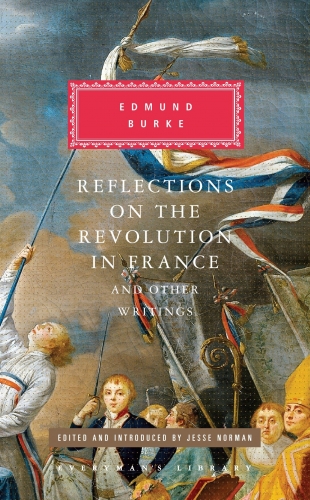
I recently had the pleasure of speaking with Fróði Midjord and Andrew Joyce on Edmund Burke’s classic counter-revolutionary text, Reflections on the Revolution in France. I invite you all to have a listen as Burke’s work, in particular his psychological analysis of the Left, has stood the test of time and remains uncannily insightful in the age of BLM, trans activism, antifa, and all their radical chic apologists.
Burke attacked, with great eloquence, insight, and ferocity, the basic ideas which had emerged in the eighteenth century and still govern our world today: the so-called Rights of Man. For Burke, basing political order on such abstract, ambiguous, and ever-fluctuating ideological fashions could only lead to perpetual chaos culminating yet-more-vicious governments. Instead, he prefers time-tested institutions and customs in tune with human nature.
In terms of practical politics, Burke is in fact quite moderate. One should only cautiously change one’s inherited customs and institutions, always preserving what is valuable. In general, a mixed democratic, aristocratic, and monarchic regime is preferable, but what is actually best will differ according to circumstance (even a democracy might be preferable in some instances). France’s Ancien Régime, he concedes, certainly could be improved upon and capacity for reform is always necessary: “A state without the means of some change is without the means of its conservation” (21). Revolution is an option in the face of a tyrannical government, but it must be the last option, a gamble to be resorted to in exceptionally grave circumstances.
Burkean Community: An Intergenerational Compact
Burke opposes the individualist and egalitarian tendencies of the Enlightenment. His “social contract” is an organic and indeed intergenerational community:
Society is indeed a contract . . . It is a partnership in all science; a partnership in all art; a partnership in every virtue, and in all perfection. As the ends of such a partnership cannot be obtained in many generations, it becomes a partnership not only between those who are living, but between those who are living, those who are dead, and those who are to be born. Each contract of each particular state is but a clause in the great primaeval contract of eternal society, linking the lower with the higher natures . . . (96-7)
How sublime is such a vision is as against a politics of maximizing personal choice and fictitious equality!
Society being an intergenerational compact, the current generation must treasure the customs and institutions inherited from the past, which have been patiently built up over the centuries. But let me quote Burke himself:
Through the same plan of a conformity to nature in our artificial institutions, and by calling in the aid of her unerring and powerful instincts, to fortify the fallible and feeble contrivances of our reason, we have derived several other, and those no small benefits, from considering our liberties in the light of an inheritance. (34)
Politicians ought to look to “the practice of their ancestors, the fundamental laws of their country, the fixed form of a constitution, whose merits are confirmed by the solid test of long experience, and an increasing public strength and national prosperity” (58). However, the revolutionaries “despise experience as the wisdom of unlettered men” (58).
Burke’s appeal to intergenerational and inherited wisdom also extends to the personal level in the form a striking defense of prejudice. Prejudice is a concentrate of practical and hard-won wisdom handed down from past generations:
You see, Sir, that in this enlightened age I am bold enough to confess, that we are generally men of untaught feelings; that instead of casting away all our old prejudices, we cherish them to a very considerable degree, and, to take more shame to ourselves, we cherish them because they are prejudices; and the longer they have lasted, and the more generally they have prevailed, the more we cherish them. We are afraid to put men to live and trade each on their own private stock of reason . . . better to avail themselves of the general bank and capital of nations, and of ages. Many of our men of speculation, instead of exploding general prejudices, employ their sagacity to discover the latent wisdom which prevails in them.. Prejudice is of ready application in the emergency; it previously engages the mind in a steady course of wisdom and virtue, and does not leave the man hesitating in the moment of decision, sceptical, puzzled, and unresolved. Prejudice renders a man’s virtue his habit; and not a series of unconnected acts. Through just such prejudice, his duty becomes a part of his nature. (87)
Human Nature as the Foundation of Politics
Burke is emphatic in arguing that political institutions must hew closely to the realities of human nature. He says: “I have endeavoured through my whole life to make myself acquainted with human nature: otherwise I should be unfit to take even my humble part in the service of mankind” (137). He provocatively dismisses the Enlightenment philosophes saying he is “[i]nfluenced by the inborn feelings of my nature . . . not being illuminated by a single ray of this new-sprung modern light” (74).
For Burke, political institutions must not be based on an exaggerated notion of humanity’s capacity for reason, but be carefully adapted to our sentiments: building upon religious piety and ‘irrational’ emotional investment in traditions and institutions, and being careful to not unleash the envy, frustration, and bitterness that lies in every human heart.
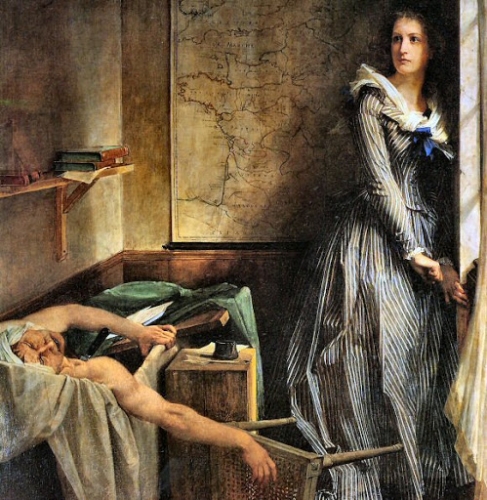
Burke is sensitive to the impact of both in-born human nature and upbringing and living conditions in defining men’s character. The ancient lawgivers, he says, “were sensible that the operation of this second nature [upbringing and living conditions] on the first [in-born nature] produced a new combination; and thence arose many diversities among men” (185).
By contrast, the French revolutionaries refused to recognize the diversity of really existing men, but spoke only of “man” in the abstract. Burke lambasts them for being at war with human nature and destroying inherited institutions which bound society together in the name of impossible equality:
[Y]ou think you are combating prejudice, but you are at war with nature. (49)
This sort of people are so taken up with their theories about the rights of man, that they have totally forgot his nature. (64)
[Y]ou ought to make a revolution in nature, and provide a new constitution for the human mind. (202)
Man may not always like his nature, but he only loses by despising and being ignorant of it:
Those who quit their proper character, to assume what does not belong to them, are, for the greater part, ignorant both of the character they leave, and of the character they assume. (11)
You might change the names. The things in some shape must remain. (142)
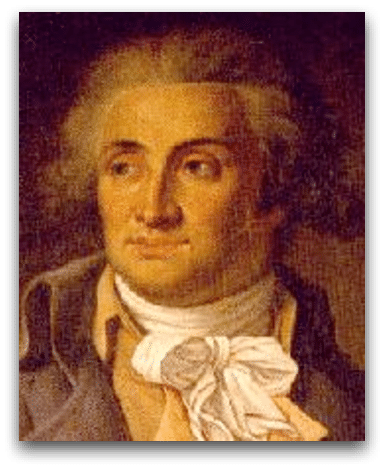
The Psychology of Egalitarian Revolutionaries
Burke is particularly strong on the psychological mechanisms underlying revolutionary movements. On the moralizing abstract intellectual lacking ‘skin in the game’:
Hypocrisy, of course, delights in the most sublime speculations; for, never intending to go beyond speculation, it costs nothing to have it magnificent. (63)
In fact, insofar revolutionaries have a vested interest, it is in stoking moral outrage:
[V]ices are feigned or exaggerated, when profit is looked for in their punishment. (140)
Burke sees the revolutionaries as destructively critical:
By hating vices too much, they come to love men too little. (171)
A spirit of innovation is generally the result of a selfish temper and confined views. People will not look forward to their posterity, who never look backward to their ancestors. (33)
Paradoxically, a democracy can be more oppressive for dissenters than an autocracy:
Under a cruel prince [dissidents] have the balmy compassion of mankind to assuage the smart of their wounds; they have the plaudits of the people to animate their generous constancy under their sufferings; but those who are subjected to wrong under multitudes, are deprived of all external consolation. They seem deserted by mankind; overpowered by a conspiracy of their whole species (126)
Democratic Intolerance and Revolutionary Chaos
Burke is emphatic in recognizing the intolerant nature of “the rights of man.” He rightly identifies the rights of man as a kind of declaration of war against all other epochs and societies. All eras and places are judged according to the standards of a gathering of Parisian intellectuals circa 1789, and are ever found sorely lacking. The revolutionaries can have no doubts about the righteousness of imposing their views:
They have “the rights of men.” Against these there can be prescription; against these no agreement is binding; these admit no temperament, and no compromise; any thing withheld from their full demand is so much of fraud and injustice. (58)
The upshot of this is that the rights of man are a recipe for perpetual strife and discontent. For those who believe a monarch is legitimate only if elected then “no throne is lawful but the elective, no one act of princes who preceded their aera of fictitious election can be valid” (23). All inherited institutions and customs that violate contemporary moral fashions then become illegitimate and can no longer serve to stabilize and unify society.
But can the revolutionaries not build up something new? Here too, Burke thinks not, because the very revolutionary principles of equality stoke and irritate the desires of men:
[H]appiness . . . is to be found by virtue in all conditions; in which consists the true moral equality of mankind, and not in that monstrous fiction, which, by inspiring false ideas and vain expectations into men destined to travel in the obscure walk of laborious life, serves only to aggravate and embitter the real inequality, which it never can remove . . . (37)
The French armies naturally became insubordinate and fractious, as soldiers demanded to elect their officers and felt no loyalty either to the discredited monarch nor to the Assembly upstarts.
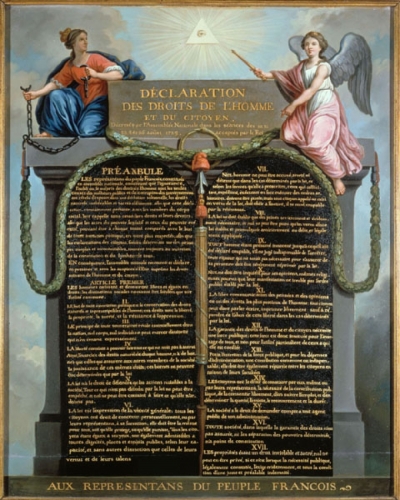
Liberal-Egalitarian Ambiguity and Hypocrisy
The moral intolerance of egalitarian principles then leads to a chaotic radicalization and the revolutionaries one-up each other. To avoid chaos and excess, or simple violation of their interests, the revolutionaries themselves must institute limits on liberty and equality. The hereditary tax privileges attached to the nobility as individuals were abolished, but peasants still had to pay taxes for privileges attached to land, because many bourgeois were such landowners.
The right to vote was conditioned upon a wealth qualification: only men paying taxes worth three days’ labor were eligible, meaning only about 60% of French men could vote. Thus the very poor were excluded from suffrage, not to mention women and inhabitants of the French colonies. Burke snorts with sarcasm:
What! a qualification on the indefeasible right of men? (175)
You lay down metaphysic propositions which infer universal consequences, and then you attempt to limit logic by despotism. (223)
Advocates of the rights of man are universally intolerant of other regimes in the name of these rights, while seeing fit to curtail these rights themselves as the situation requires.
This highlights the basic moral defensiveness of the Right and the universal fervor of the Left. We saw this even in the age of fascism. When a New York Times interviewer criticized Mussolini’s authoritarian regime, the Italian dictator wryly responded: “Democracy is beautiful in theory; in practice it is a fallacy. You in America will see that some day.” Hitler was similarly emphatic, against those Western democrats that feared his ideology, that National Socialism was not for export. Meanwhile, the communists patiently worked according to the principle that all humanity must embrace their system and the liberals drafted documents imposing their own principles on all the nations and races of the Earth.
The liberals’ violation in practice of the rights they expound in the abstract is grounded in the very ambiguity of these rights. We cannot accuse the French revolutionaries of too much dishonesty in this respect. In fact, the 1789 Declaration of the Rights of Man and of the Citizen is often shockingly ambiguous. The American Declaration of Independence states that “all men are created equal,” an observation that, unqualified, is a self-evident falsehood. The French Declaration’s notorious Article I affirms by contrast:
Men are born and remain free and equal in rights. Social distinctions can be founded only on the common good.
One may complain that the latter sentence annihilates the former, but at least it provides a standard for how far rights should extend. In theory, then, even practices of segregation or various hierarchies could be justified if these are considered conducive to “the common good.” The revolutionaries initially did not consider that voting, for instance, was a right, but rather a duty which should only be fulfilled by those best qualified.
Similarly in Article IV’s general provision on liberty:
Liberty consists of doing anything which does not harm others: thus, the exercise of the natural rights of each man has only those borders which assure other members of the society the enjoyment of these same rights. These borders can be determined only by the law.
What “does not harm others”? Does a 70 IQ hereditary idiot fathering 20 children “harm others”? In practice, the reality of universal interdependence annihilates the principle of individual liberty. Today, our liberal democracies regulate every aspect of life, from forcing children to spend years in State education to the hyper-regulation of economic life on redistributive, environmental, and consumer grounds, among many others. Not to mention the massive curtailment of civil liberties and micro-management of citizens’ behavior to fight coronavirus. But, for some reason, our rulers believe that demographic trends, which determine the very character of the nation, should remain wholly unregulated and random.
And Article XI on free speech:
The free communication of thoughts and of opinions is one of the most precious rights of man: any citizen thus may speak, write, print freely, except to respond to the abuse of this liberty, in the cases determined by the law.
The principles may or may not be sound, but they are surely ambiguous and abstract. The United States Constitution and the Bill of Rights by contrast build upon an Anglo-American political and legal tradition, these posit practices (and limits upon them), not merely general principles.
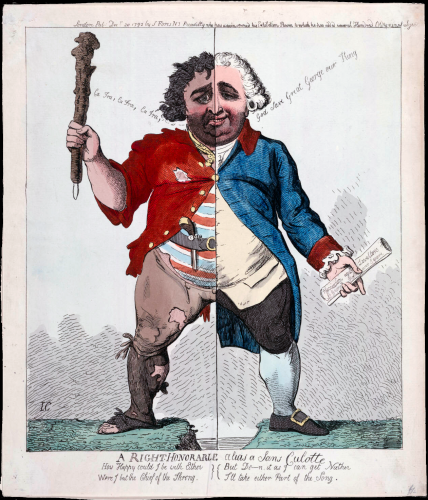
One should not necessarily read too much into the 1789 Declaration. The fundamental points were fairly straightforward: hereditary privileges are abolished, the church must be relegated to a secondary role, sovereignty resides in the nation/people (whatever that means), and the law must rule rather than the king. It’s striking the degree to which later nationalism and indeed fascism took on many of these French revolutionary principles (the Italians quite openly, Mussolini after all started out as a militant socialist atheist).
The revolutionaries of 1789, essentially lawyers and liberals, dreamed of a meritocratic and moderate regime founded on reason: hereditary privileges were abolished, the king was subject to the nation’s representatives and (in theory) the rule of law, and the churchlands were nationalized to shore up government finances. This revolution was achieved partly through the boldness of the men representing the Third Estate but also by periodic and chaotic uprisings of the Paris mob against the state’s forces and even the king himself.
Burke could already see that the precedents and principles the revolutionaries had set could only lead to a chaotic situation spiraling out of control. The unifying institutions of monarchy and church had been dragged through the mud, aristocrats and pious peasants had been turned into enemies, while the hungry Parisian mob, those peasants still smarting from taxation, and the fanatical and paranoid revolutionary elements had not been turned into friends. Thus, said Burke, France could only degenerate into civil war, military dictatorship and an ignoble financial oligarchy: “Here end all the deceitful dreams and visions of the equality and rights of men”! (196)
Burke lamented the end of the European aristocracy:
But the age of chivalry is gone. That of sophisters, economists, and calculators, has succeeded; and the glory of Europe is extinguished forever. Never, never more, shall we behold that generous loyalty to rank and sex, that proud submission, that dignified obedience, that subordination of the heart, which kept alive, even in servitude itself, the spirit of an exalted freedom. (76)
In retrospect, the conflicts of the late eighteenth century can seem rather quaint. From our vantage point, we can see that Britain, America, and France were fundamentally on near-parallel and converging trajectories.
The old constraints and disciplines – the specialization of the sexes, the separation of nations, the very idea of legitimate authority – have steadily disintegrated. Appeal to tradition and religion could no longer sustain them. For a time, from the 1860s to the 1930s or so, it seemed as though Western nations might embrace a biopolitics which, combining old philosophical and new scientific principles, would recognize natural differences and inequalities, thus preserving healthy traditions and indeed healthy progress, tending to biological and cultural perfection.
That tendency stalled and was finally annihilated. Custom, that “tyrant unto man,” has been destroyed in the name of name of the basic principle that humans, “the measure of all things,” are all basically equal and interchangeable atoms. Therefore, our ineradicable social inequalities and specializations can only be the result of our societies’ and cultures’ perversion. We must therefore wage war against our history and our societies – and above all against White men, the great malefactors of humankind.
I cannot help but think that this trend is more driven by a kind of petty self-love, vain and injured amour-propre, than by true self-knowledge, whereby each of us would, with due humility, take up with right pride our particular station in the great chain of being.
There is no telling when and how the current strife will end. On a positive note, Western man’s sensitivity to ‘justice’ as an ideal may lead to perpetual strife, but is also clearly a great source of the experimentation and dynamism which characterizes our history. In Europe, the state is smoothly leading the totalitarian march towards the mirage of equality. In America, there is chaos and neither history, nor culture, nor race, nor anything else seems to keep that great landmass-cum-economic zone together. What will be the new equilibrium and when will it arise? Will the liberals, holding true to their ideals over inconvenient facts, completely wreck their own cities? Will the regime stabilize under a Biden presidency tending towards European-style social-democracy? When will meet our Bonaparte?



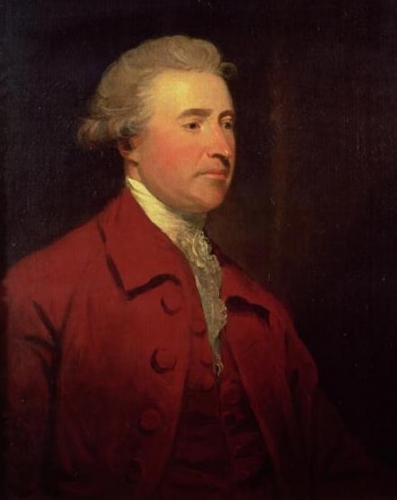

 del.icio.us
del.icio.us
 Digg
Digg
Commentaires
Burke should be read by Marine Le Pen to enlighten our neo conservative right and prevent it from drifting into its permanent jacobinistic idiosyncracy. Burke sums up the english realistic conservative tradition. Exactly what is needed today for Europe. Times are ripe for this because the Brexit is a mere detail in the big picture of the total collapse of the post World War II order.
Écrit par : vernizeau | mardi, 18 août 2020
Les commentaires sont fermés.